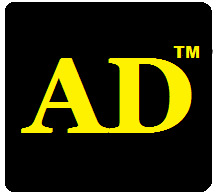![]()
![]()
![]()
![]()
![]()
SWITZERLAND
Bern Capital • “One for all, all for one”
Federal state on 12 September 1848
The Federal Charter of 1291 is considered the founding document of Switzerland, which is celebrated on Swiss National Day. Since the Reformation of the 16th century, Switzerland has maintained a firm policy of armed neutrality; it has not fought an international war since 1815 and did not join the United Nations until 2002.
Switzerland’s largest cities and economic centres are, among them Zürich, Geneva and Basel. These three cities are home to several offices of international organisations such as the WTO, the WHO, the ILO, the headquarters of FIFA, the UN’s second-largest office, as well as the main office of the Bank for International Settlements.
Switzerland is the birthplace of the Red Cross, one of the world’s oldest and best known humanitarian organisations. It is a founding member of the European Free Trade Association.
Many international institutions have their seats in Switzerland, in part because of its policy of neutrality. Geneva is also the birthplace of the Red Crescent Movement, the Geneva Conventions and, since 2006, hosts the United Nations Human Rights Council.
Henri Nestlé (1814-1890) was a German-Swiss confectioner and the founder of Nestlé, located in Vevey, Vaud, Switzerland, the world’s largest food and beverage company.
Nestlé’s products include baby food (some including human milk oligosaccharides), medical food, bottled water, breakfast cereals, coffee and tea, confectionery, dairy products, ice cream, frozen food, pet foods, and snacks.
Nestlé has 447 factories, operates in 189 countries, and employs around 339,000 people. It is one of the main shareholders of L’Oreal, the world’s largest cosmetics company.
Local Swiss entrepreneurs have created business opportunities in the country. With the help of local business leaders, the demand for startup ventures and the need for more goods and services has ignited the spirit of business ownership in the Swiss community.
#AlphabetLocal
ALMA UP!
Branding. Entrepreneurs. Startups.
Customized For Business!
ALPHABET INTERNATIONAL
Online – Mobile – Security – Tech
Real. Targeted. Local. Ads.
ALPHABET RESOURCES
Online – Mobile – Security – Tech
Real. Targeted. Ads.
SHOP LOCAL
Online – Mobile – Security – Tech
Real. Targeted. Ads.

SHOP LOCAL
Online – Mobile – Security – Tech
Real. Targeted. Ads.









